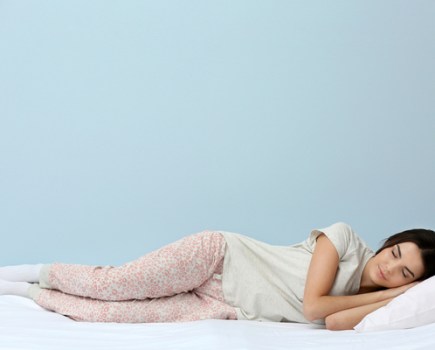Discover the power of ancient adaptogens and how they can help you navigate the menopause with ease.
What are adaptogens?
if you’ve heard the word adaptogen being bandied around recently but aren’t really sure what it’s all about, don’t worry. These clever plants have been used in Chinese and Indian Ayurvedic medicine for centuries, but now they’re enjoying the spotlight here too. With various new studies proving the wellbeing benefits of this class of herbs, tubers and mushrooms, they’ve now become a popular feature in many recipes and supplements.
‘Adaptogens are nourishing natural medicines that help your body deal with stress,’ says nutritionist Dr Sarah Brewer (drsarahbrewer.com). While each of these special plants function differently, what unites them is their ability to ‘adapt’ to your body’s needs, and strengthen its reactions to any stresses that may arise.
They’re great for supporting your health throughout your life, but can be particularly useful during perimenopause and menopause. That’s when your oestrogen level declines, throwing the rest of your hormones out of whack and causing annoying symptoms such as hot flushes and night sweats. Adaptogens can help by getting your hormones to work harmoniously again.
How can adaptogens help with hormones?
Some adaptogens stimulate your adrenal glands to produce a different hormone, androgen, which is then converted to a kind of oestrogen, making them very useful if you don’t want to, or can’t, embark on synthetic or bioidentical hormone treatment.
Others target your progesterone level. As oestrogen declines you have proportionately more progesterone, which can lead to symptoms such as low mood and vaginal dryness. Reducing your progesterone so it is more in line with your oestrogen can reduce these symptoms.
Still other problems are caused by cortisol. When your body is not called on to make oestrogen, it has more natural resources to make cortisol, a stress hormome, which is what can lead to anxiety, weight gain and feelings of lethargy. The great news is that nature has provided us with all the tools we need to get our bodies back in balance if we unlock the power of these amazing plants.
The best herbs and roots to ease menopause symptoms
Black cohosh
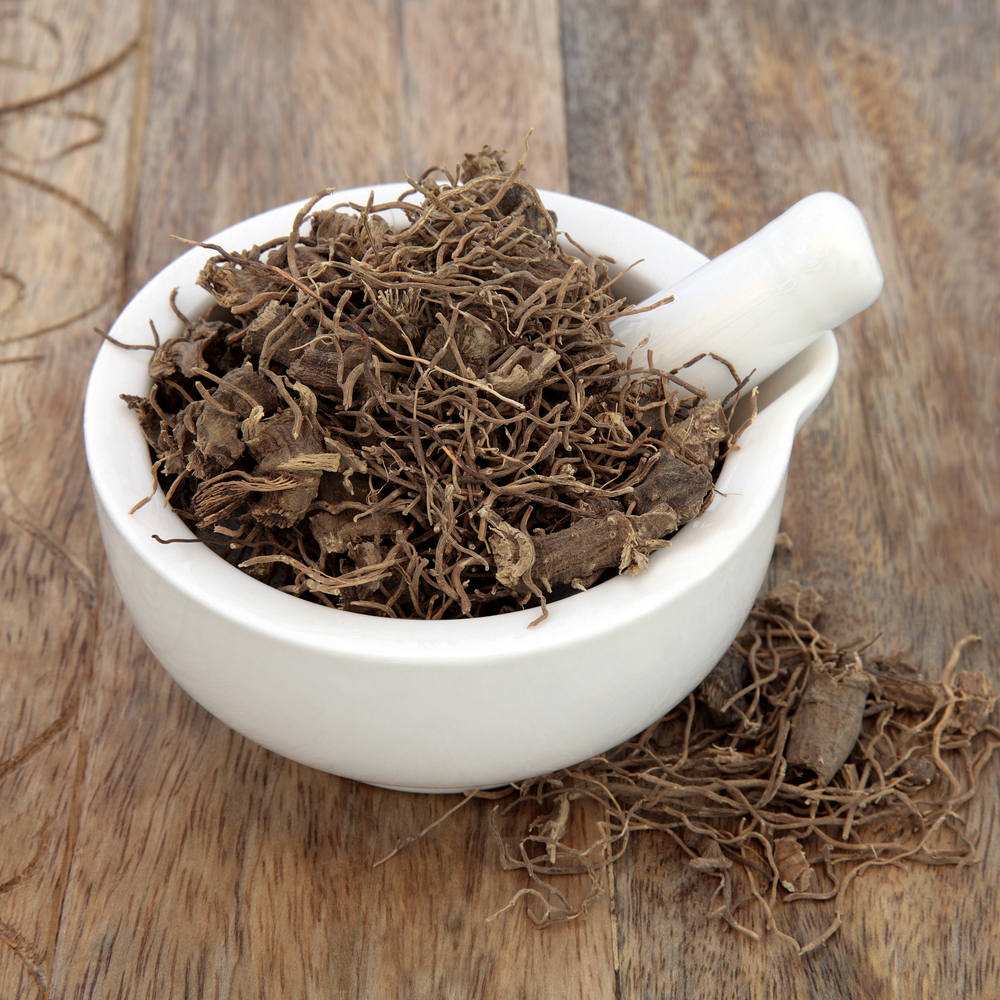
A member of the buttercup family and native to North America, black cohosh has been used for hundreds of years to support reproductive health. ‘Black cohosh is one of the most widely studied alternatives to hormone replacement therapy, with research from the University of Gottingen showing it’s as effective in relieving hot flushes, vaginal dryness, and low mood as standard HRT,’ says Dr Brewer.
Oestrogen-like plant hormones called phytoestrogens spark a reaction in the pituitary gland in the brain which helps to decrease progesterone levels so that it’s better balanced with oestrogen.
Gotu kola
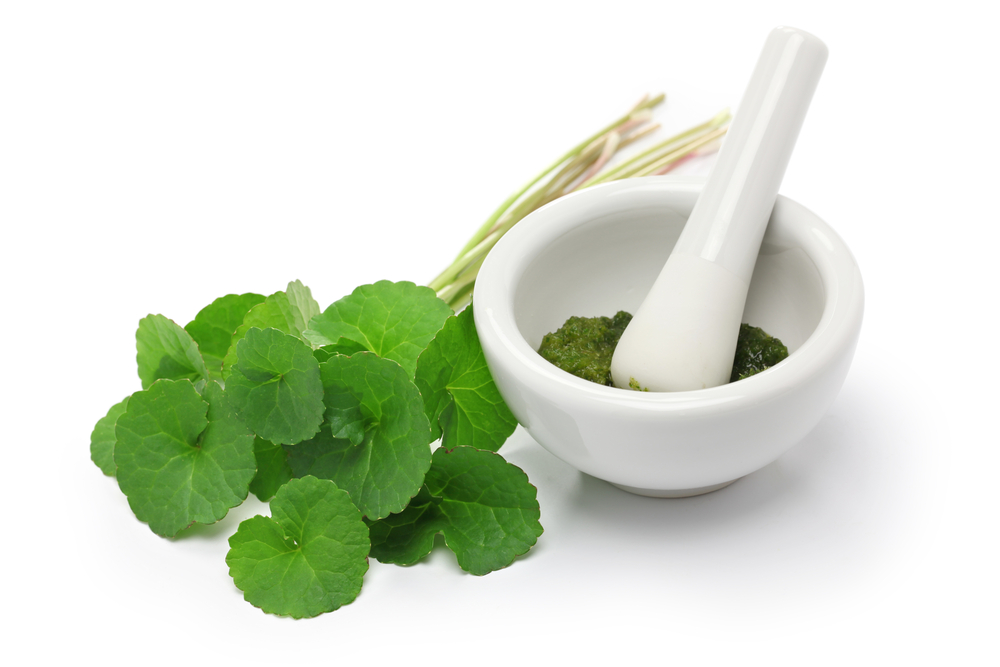
Native to Asia, this flowering plant is most beneficial when it comes to improving mental health. ‘The gotu kola plant is celebrated for its ability to promote a sense of calm and reduce brain fog,’ says Dr Brewer. Its ability to reduce anxiety was shown in a study by the University of Ottowa. Those taking gotu kola regularly showed a reduced startle response to a loud noise compared with those on a placebo.
Ashwagandha
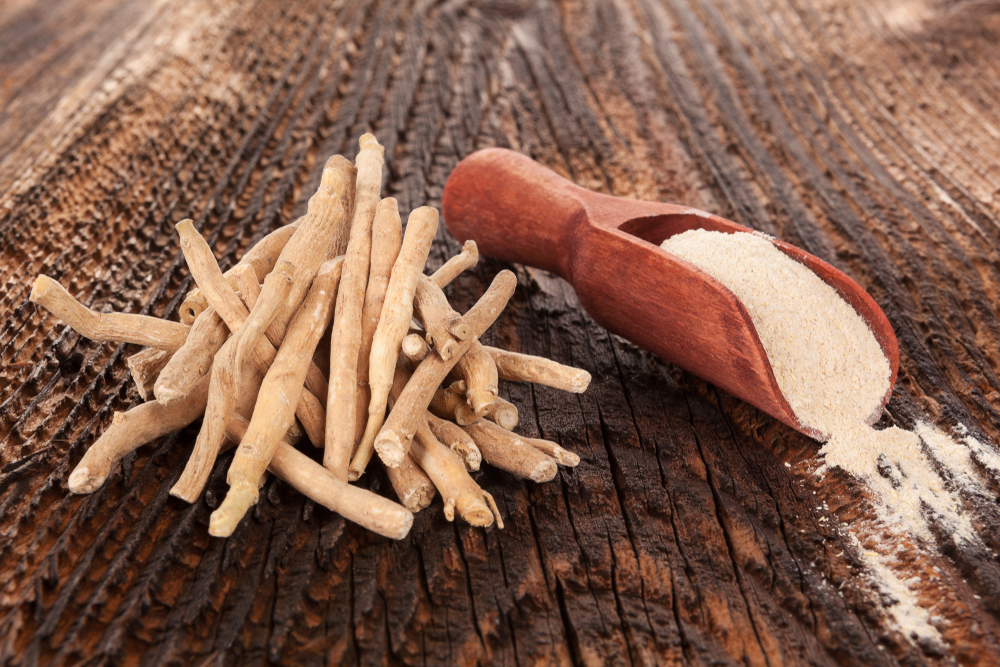
‘This powerful adaptogen (also known as Indian ginseng) helps to promote serenity and deepen sleep,’ says Dr Brewer. Much of this is down to the way that ashwagandha may limit production of the stress hormone cortisol, as one study published in the Indian Journal of Psychological Medicine reported. Cortisol can rise with the menopause and cause an increase in anxiety and sleep disturbance, but patients who took ashwagandha twice a day for 60 days found their cortisol levels decreased by an average of nearly 30 per cent.
Maca root
 A food of the ancient Incans, maca helps increase oestrogen production. ‘It’s thought that plant sterols in maca root have oestrogen-like actions to combat hormone imbalances,’ says Dr Brewer. Peri-menopausal women who took maca root for four months had fewer hot flushes, night sweats and less insomnia, according to a study at Charles Sturt University in Australia. A maca supplement can also improve libido, found researchers at Victoria University. When a group of menopausal women took it daily, they saw significant improvement in
sex drive compared to those who
only took
a placebo.
A food of the ancient Incans, maca helps increase oestrogen production. ‘It’s thought that plant sterols in maca root have oestrogen-like actions to combat hormone imbalances,’ says Dr Brewer. Peri-menopausal women who took maca root for four months had fewer hot flushes, night sweats and less insomnia, according to a study at Charles Sturt University in Australia. A maca supplement can also improve libido, found researchers at Victoria University. When a group of menopausal women took it daily, they saw significant improvement in
sex drive compared to those who
only took
a placebo.
Rhodiola
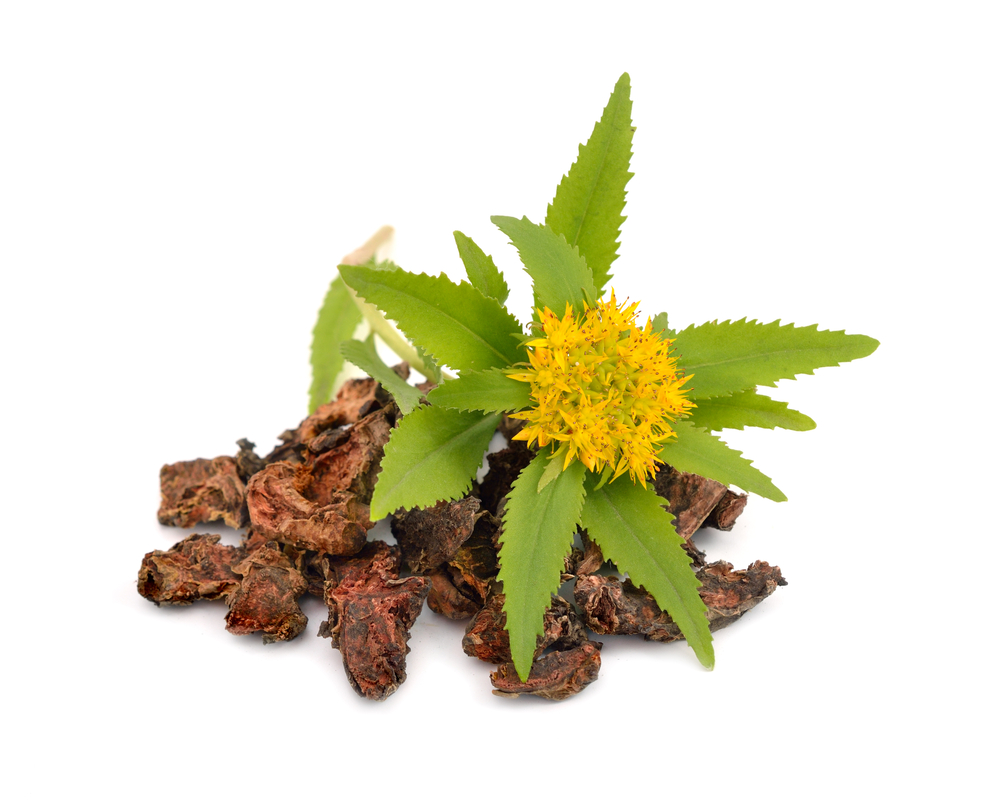 This alpine plant has long been used to increase resistance
to stress. In fact, people with
stress-related fatigue who took it had decreased cortisol levels compared to those taking a placebo, according to research from Uppsala University, Sweden. ‘Rhodiola roots contain a number of unique antioxidants,’ says Dr Brewer. ‘These influence levels of hormones that make you feel happy and relaxed, including serotonin, dopamine and noradrenaline.’
This alpine plant has long been used to increase resistance
to stress. In fact, people with
stress-related fatigue who took it had decreased cortisol levels compared to those taking a placebo, according to research from Uppsala University, Sweden. ‘Rhodiola roots contain a number of unique antioxidants,’ says Dr Brewer. ‘These influence levels of hormones that make you feel happy and relaxed, including serotonin, dopamine and noradrenaline.’
- Calm down and look younger with breathwork
- Easy exercises to help you through menopause






